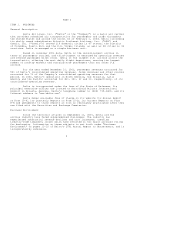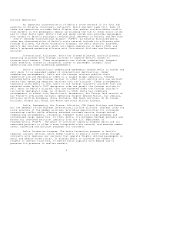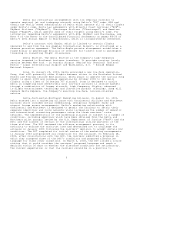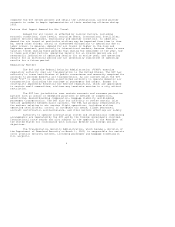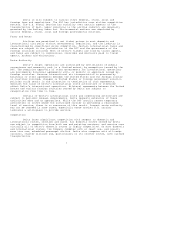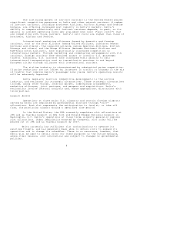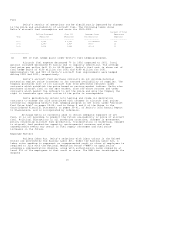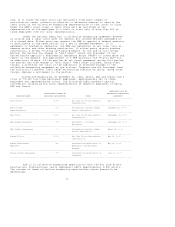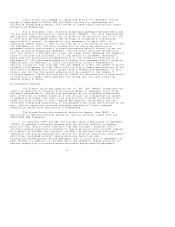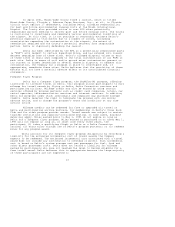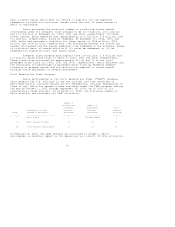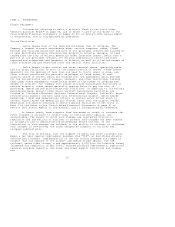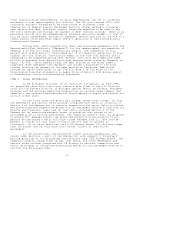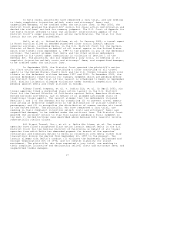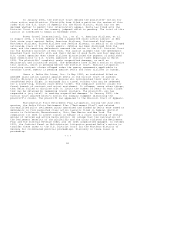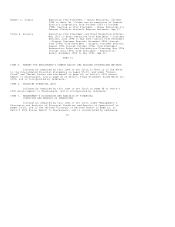Delta Airlines 2002 Annual Report Download - page 15
Download and view the complete annual report
Please find page 15 of the 2002 Delta Airlines annual report below. You can navigate through the pages in the report by either clicking on the pages listed below, or by using the keyword search tool below to find specific information within the annual report. Labor unions are engaged in organizing efforts to represent various
groups of employees of Delta, ASA and Comair who are not represented for
collective bargaining purposes. The outcome of these organizing efforts cannot
presently be determined.
Pilot Furloughs. The collective bargaining agreement between Delta and
the Air Line Pilots Association, International ("ALPA"), the union representing
Delta pilots, generally provides that no pilot on the seniority list as of July
1, 2001 will be furloughed unless the furlough is caused by a circumstance
beyond Delta's control, as defined in that agreement. In April 2002, an
arbitrator upheld Delta's right to furlough up to 1,400 pilots on the basis that
the September 11, 2001 terrorist attacks and the resulting reduction in
passenger traffic constituted a circumstance beyond Delta's control as set out
in the collective bargaining agreement. The arbitrator retained jurisdiction
over this matter to consider any issues that might arise regarding the Company's
plans to continue the furloughs, or its obligation to implement reasonable
mechanisms for recalling furloughed pilots, if the conditions existing as of
September 11, 2001 were ameliorated to an extent that exceeded Delta's original
expectations. On February 13, 2003, the arbitrator issued a supplemental
opinion, ruling (1) that furloughs will be capped at 1,060, the number of pilots
currently furloughed; (2) that Delta will not have to begin recalling any of the
existing furloughed pilots until system traffic exceeds pre-September 11, 2001
levels; and (3) that the recall schedule will be subject to the Company's
training capacity. While this ruling will result in the retention of some pilots
in excess of its needs, Delta believes the ruling will not have a material
adverse effect on Delta.
Environmental Matters
The Airport Noise and Capacity Act of 1990 (the "ANCA") recognizes the
rights of operators of airports with noise problems to implement local noise
abatement procedures so long as such procedures do not interfere unreasonably
with interstate or foreign commerce or the national air transportation system.
It generally provides that local noise restrictions on Stage 3 aircraft first
effective after October 1, 1990, require FAA approval. While Delta has had
sufficient scheduling flexibility to accommodate local noise restrictions in the
past, Delta's operations could be adversely impacted if locally-imposed
regulations become more restrictive or widespread.
The United States Environmental Protection Agency (the "EPA") is
authorized to regulate aircraft emissions. Delta's aircraft comply with the
applicable EPA standards.
In February 1998, the EPA and the FAA signed a Memorandum of Agreement
("MOA") to develop a voluntary process with the airline industry to reduce
emissions that lead to ozone formation. The MOA includes a proposal with a
voluntary engine modification program to reduce emissions from aircraft engines.
As a result of the MOA, air carriers, the EPA, the FAA and local and state
regulators are evaluating potential options for emission reductions from airport
activities, including aircraft engine emissions reductions and
alternative-fueled ground service equipment, but no conclusion or agreement has
been reached. In addition to the MOA, Delta has agreed to reduce emissions at
certain airports by utilizing alternative-fueled ground service equipment.
12



